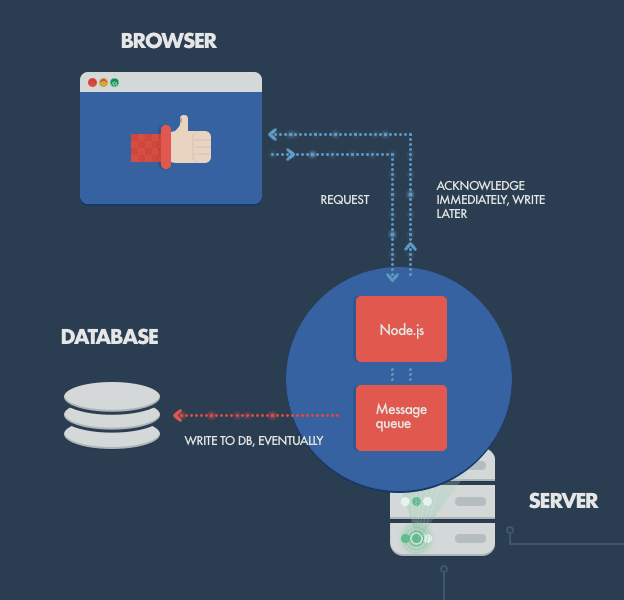It hasn’t always been that way, however. JavaScript recently transitioned from the browser to the server and expanded into a wide range of applications. And Node.js deserves praise.
Node.js: What Is It?
To execute web applications outside of the client’s browser, one may utilize the cross-platform open-source runtime environment and library known as Node.js. Ryan Dahl first came up with it in 2009. Dahl was disappointed with the options available for developing online apps until he saw a file upload progress bar on Flickr and was inspired to develop it. He decided to create a lightweight, user-friendly environment as a result. Read more info: https://relevant.software/node-js-consulting-services/ And thus it came into being. You’re probably wondering what node js is used for at this point. It is mostly used for non-blocking, event-driven servers, including standard webpages and back-end API services, and is used for server-side programming. Each browser has a unique JavaScript engine, and Node.js is based on Google Chrome’s V8 JavaScript engine.
How Does Node.Js Function?
It pays to discuss the shortcomings that JavaScript had in the past to grasp better the revolutionary role that Node.js plays. As a single-threaded system, JS processes all requests simultaneously. Everything on the website is handled by a single thread, including page scrolling, listening to DOM events, printing content on the page, etc. The server won’t continue with another request while processing the current one. The execution will be stopped in this situation, and the browser will “freeze.” A progressive event-driven paradigm is used by Node.js, and an event-loop that responds to certain events is used. Due to its usage of single-thread non-blocking I/O requests, Node.js can handle thousands of connections at once.
Advantages of Using Node.Js
You may have already guessed that Node.js is a popular choice among programmers. And the reason is as follows:
Model for Non-Bocking I/O Calls
The benefits of Node.js are many. The event-based paradigm, nevertheless, is its greatest strength. When the server receives hundreds of connections at once, Node.js handles them in order of priority in a single thread rather than creating new ones. With this resource allocation, more users may be served at once.
JavaScript is an Easy and Well-Liked Language
Node.js is an environment for JavaScript execution rather than a fully-fledged programming language. Although Node.js has its tools, such as native libraries, it mostly makes use of JavaScript’s features and syntaxes.
V8 Motor
Google created the C++-based V8 engine to enhance the performance of JavaScript. By turning JavaScript into computer-readable machine code, the engine boosts performance. As a result, the V8 engine is always developing to speed up the ecology of Node.js and the Web.
Both the Front-End and the Back-End
The universality of Node.js is another benefit. One programming language, Node.js, may be used for both front-end and back-end development. A client’s life is made simpler by this straightforward feature since it might be challenging to locate a group of full-stack coders.
The Package Manager for Node
One of the most advantageous features is the Node Package Manager (NPM). You may utilize code packages offered by other developers in your projects by downloading them using NPM. You won’t have to write nearly as much code from scratch as a consequence. Node.js has the biggest software library registry in the world. It is simple to discover answers to numerous issues you can run into while creating your project thanks to the main registry’s over 1.3 million packages, all of which have been produced by the Node.js community. By installing both the library’s source and all of its dependents, NPM makes it straightforward to manage application dependencies.
Conclusion
There are many other frameworks, but Node.js stands out as the best. Despite being straightforward and commonly utilized, the environment is only valuable when used properly. We have covered Node.js from theory to practice, starting with its aims and goals and concluding with its strengths. Blocking operations are the source of all evil, and when users have issues with Node, it nearly always comes down to that. 99% of Node abuses are a direct result of blocking operations.
